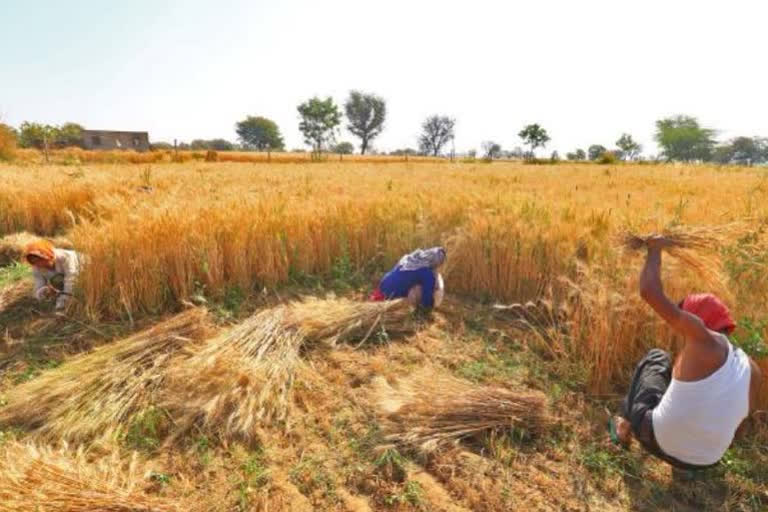Hyderabad:The Finance Minister rightly spelt out that, all sectors are free to sell across the country, so why shouldn’t farmers be allowed to do the same? On the surface, this sounds like a fair proposition, but is it?
To delve deeper into this question, we need to go back to founding ideas of the Indian Constitution. After 350 years of exploitation by the East Indian Company, (world’s first agri-business MNC), the Indian farmers were reduced to mongrels.
Thanks to Winston Churchill’s eugenic policies, the Bengal experienced the Great Famine and rest of the country was destitute, while the Viceroy’s parties overflowed with ‘Gin and Tonic’.
Having witnessed the rampant exploits of the Agri-corporations, Indian lawmakers through the Seventh Schedule (Article 246) placed “agriculture” in entry 14 and “market and fairs” in entry 28 of the State List. So never again, does India experience such a brutal takeover of her farms.
They wanted to give States paramount autonomy over their own farms and produce, as each one size didn’t fit all farms and markets. Each area and agro-climate was different with its own set of social and economic practices; a central control would be a policy blunder, and also outright tyranny.
Read more:Economic Package: Will Finance Minister’s announcements change migrant workers' fate?
The APMC (Agricultural Produce Market Committees) Act, ensured that each farmers in even the remotest part of the country, at least gets fair treatment and equal opportunity to sell his produce, and it even acted as a stop-check for the traders and retailers, where they could ensure standard quality and hygiene, while no farmer or trader had a unfair bargain.
The APMC committee were drawn from local representatives, including farmers and traders from the area. Once leaks were witnessed, where farmers were fooled into selling their produce under pressure to traders or for an unfair deal, law makers expanded the ambit of APMC to cover area beyond the Mandi yard and even inter-state trade.
This was done to regulate the system and also ensure that the minimum support prices reach the farmers. Without the mandis it would be near impossible to deliver the MSP to farmers. The private industry still cannot be trusted to deliver the support price much like the trader.
Historically, we have seen with the rise of Agri-business giants like Cargill, Louis Drefyus, etc in the US and the world, once the regulations safeguarding price control was removed. The Farmer Co-operatives were systematically broken down and “market forces” led to a new era of agrarian slavery in the US. The result, American farm debt stands at $425 Billion in 2020 and four companies controlling over 70% of the world’s grain supply.
